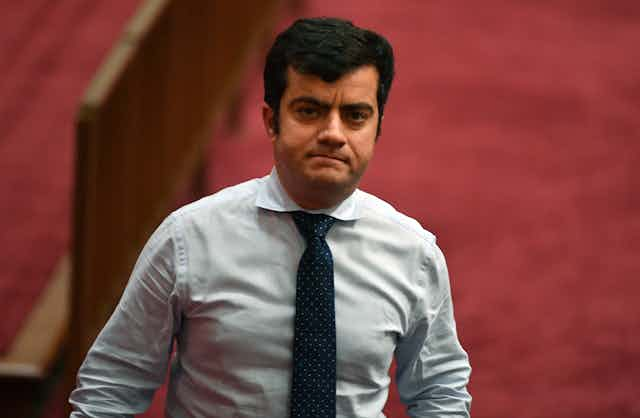Labor senator Sam Dastyari has called for a full ban on all political donations from individuals and corporations. Dastyari is no stranger to this issue: he was forced to resign from the shadow frontbench in 2016 following revelations that a Chinese company paid his travel expenses.
Opposition Leader Bill Shorten has said he is not in favour of Dastyari’s position:
When it comes to donations, I don’t think the taxpayer is ready to foot the bill for all political expenses in Australia, so I still think there is a role for donations.
Both Labor and and the Liberal Party are in favour of banning foreign political donations, but not all donations generally.
Further reading: Banning foreign political donations won’t fix all that ails our system
Why ban donations?
The key issue with political donations is whether large donations secure greater access to politicians than ordinary people have.
Another issue is whether large donations sway politicians to bestow illegitimate favours or adopt policies that directly benefit donors.
Dastyari was the Labor Party’s chief fundraiser in New South Wales from 2010 to 2013. He explained that some donors give money for philanthropic reasons or to support an ideological cause, while those in ethnic communities may donate as a sign of prestige. But he also explained:
Frankly, some people do it because of that very, very murky world of access. And they want access for outcomes.
The suggestion is that it’s possible to “buy” political access and influence through political donations.
The managing director of Transfield Holdings, Luca Belgiorno-Nettis, has likened political donations to the Latin saying do ut des: “you give in order to have given back”.
Where will the money come from?
Campaigning for election is expensive. To promote their cause, political parties tend to spend big bucks on high-impact slots on TV and radio, travel extensively, and perhaps hire fancy political consultants.
Membership of Australia’s political parties has declined over the years, so they’re now less able to raise money from membership fees. Parties do receive some public funding, but not enough to pay for an expensive election campaign. This has led to the parties being very reliant on political donations.
If we ban all donations from individuals and corporations, funding for political campaigns must come from elsewhere. Public funding of elections would need to increase, meaning taxpayers would bear a bigger burden in funding elections.
The current level of federal public funding is about half of what an election campaign costs. In some parts of Europe and in Canada, the level of public funding of elections is higher, amounting to between 50% and 90% of costs.
There are challenges in calculating how much public funding should be allocated to parties, including the entitlement of new or micro-parties.
Further reading: Explainer: how does our political donations system work – and is it any good?
Is a ban constitutional?
Any regulation of political donations needs to be consistent with the Constitution. Australia has a constitutionally protected freedom to communicate on political matters.
A ban on donations limits political communication by restricting the source of funds available to political parties and candidates to meet the costs of political communication.
The High Court has ruled that any limitations on the freedom of political communication must be proportionate and have a legitimate purpose. Banning donations would seem to have a legitimate purpose: to reduce undue influence on Australian politics and public policy. But it is difficult to predict how the court would rule on proportionality.
The High Court has not previously ruled on a complete ban on political donations, but it has held that caps on donations are constitutional.
Is this a good idea?
Dastyari’s proposal would definitely even up the playing field. It would eliminate the perception and reality that rich donors are able to “buy” access or influence in politics.
Besides fully banning donations, another option is to have a low cap on donations of, say, A$1,000. For example, NSW has a yearly cap of $5,800 per party and $2,500 for candidates. This would also level the playing field and reduce the influence of rich donors.
Dastyari is right: it is time to take action on the murky world of political donations. Let’s hope the government will heed the call for change.

